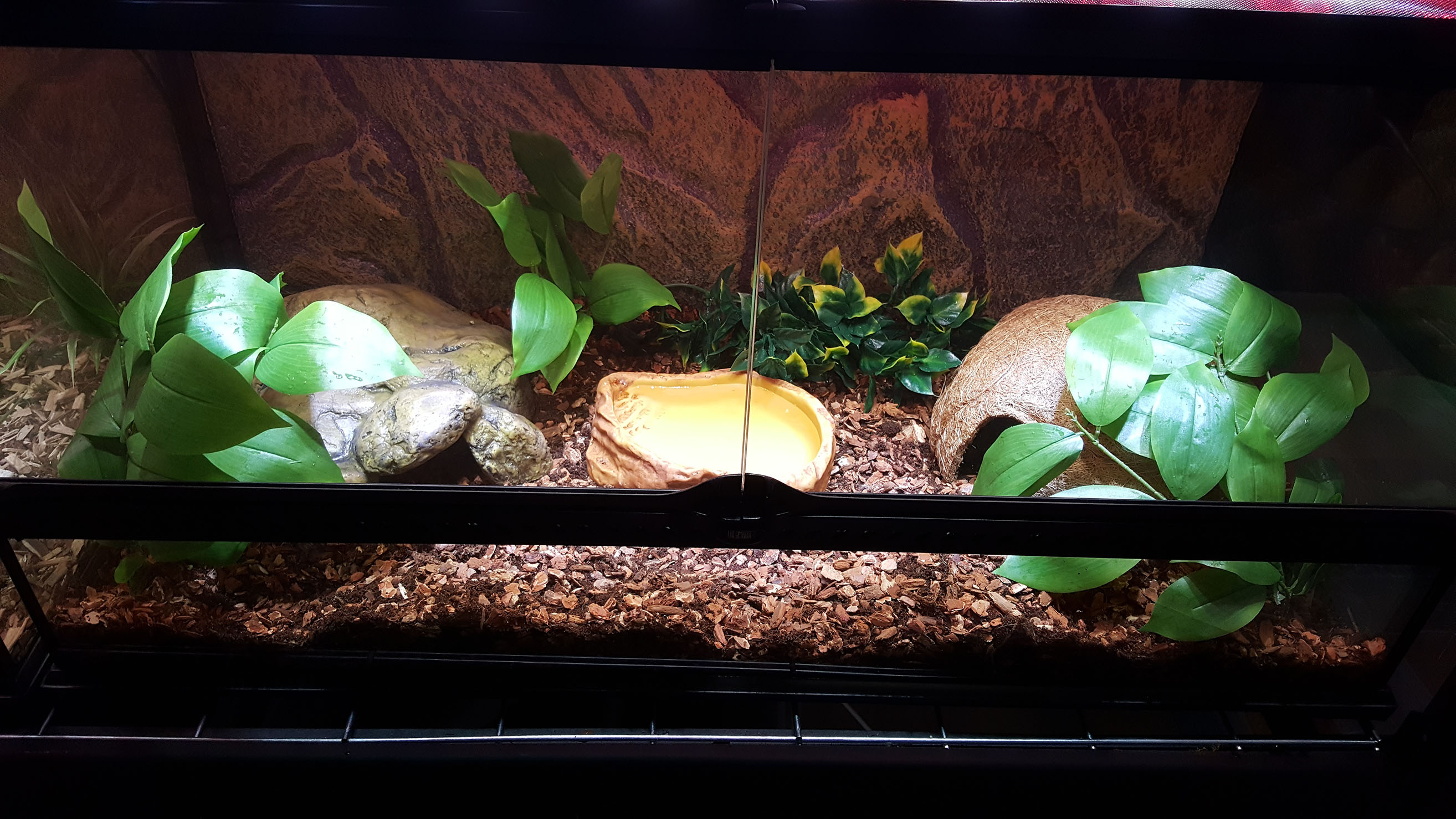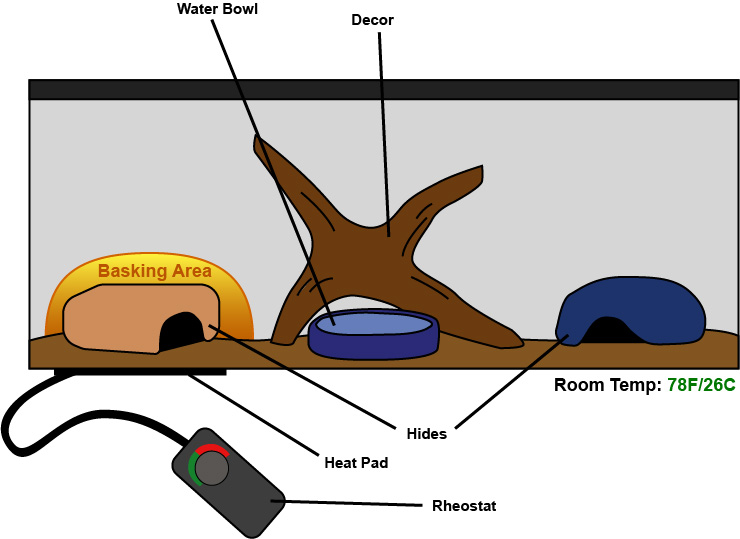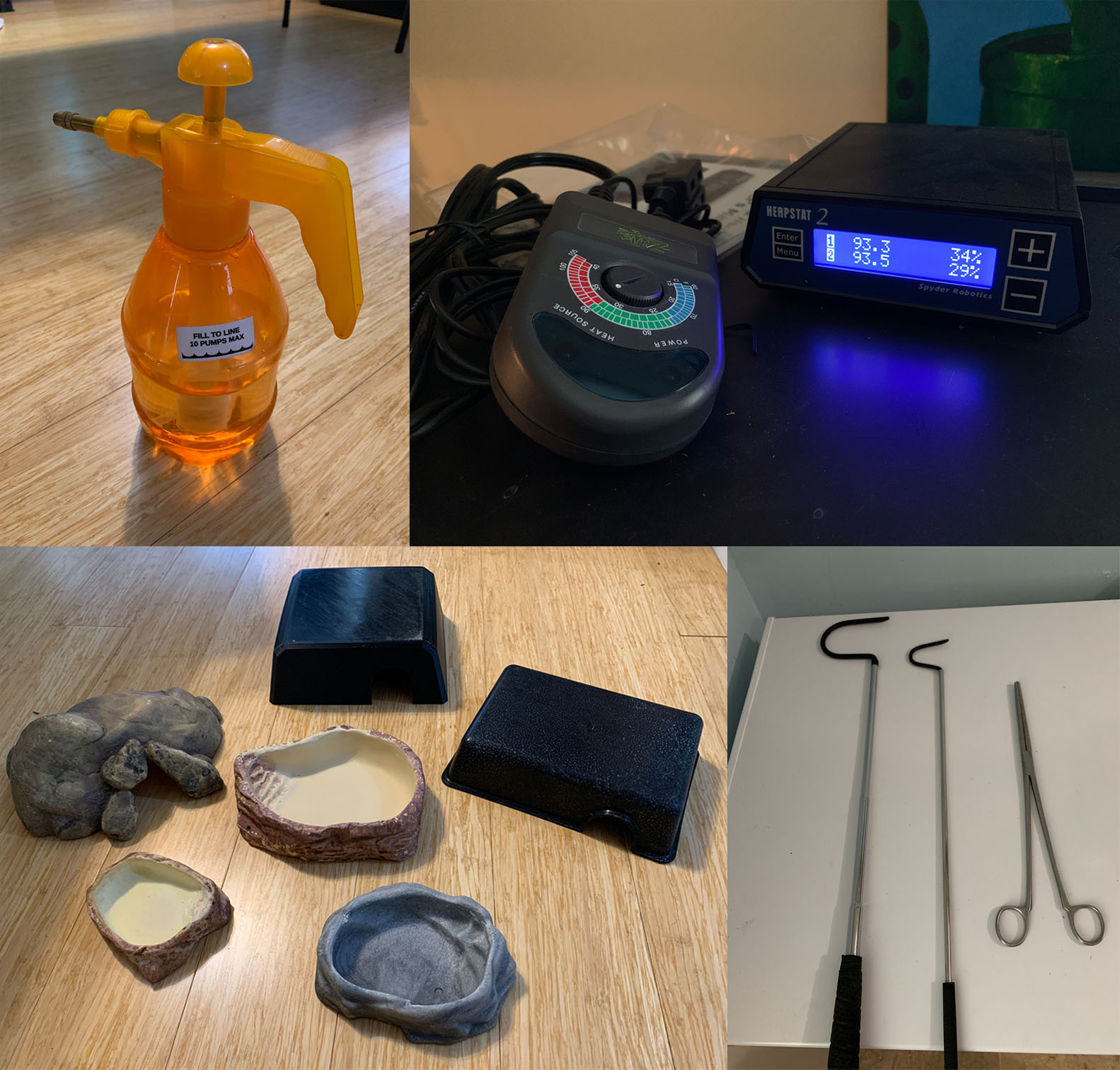Welcome to the world of Reptile Keeping! Here are the absolute basics in reptile supplies.
In general, reptiles have a few very specific needs. They need:
- An enclosure that will keep them safe
- Ambient temperatures appropriate to their species
- A temperature gradient
- A basking spot
- Access to clean, fresh water
- Bedding appropriate to their species
- Humidity appropriate to their species
- A place to hide
- Meals appropriate to their size, species, and individual needs
Usually, that amounts to this:
- A top-locking or front-locking enclosure
- A dome heater, radiant heat panel and/or heat mat with thermostat
- Reptile-safe bedding
- Spray bottle/humidifier
- Temperature/humidity gauges and a temp gun
- Hides
- A water bowl
- Access to species-appropriate food
- Feeding tongs/hemostats
Overall, these are the things you should expect to provide for your reptile. You do NOT want to cut corners on any of these things. A cinder block sitting on an aquarium screen, for example, is NOT a locking enclosure.
I will aim to cover each of these things in separate posts in more depth. We also will provide care sheets that are specific to species and should give you a better idea of what you need for your individual pet.
These are the basic, most important things. If you are ever having a problem with your animal (ie, sick, not eating, lethargic, vomiting, stuck shed, etc), review your basic husbandry. You will find a lot of posts here with a lot of techniques and advice, but always remember the basics. They can save you a lot of hassle and unnecessary trips to the veterinarian.
And, finally, learn as much as you can. Find good sites and good reference books. Try to find yourself a good veterinarian. Reptiles are animals too, and there are veterinarians who see them. Look for an exotic animal veterinarian with reptile experience.
Sometimes, problems may arise that you just cannot handle. Having good resources, finding a good vet and gaining contact with other experienced keepers/breeders you trust can be very helpful. You don’t have to do it alone.



